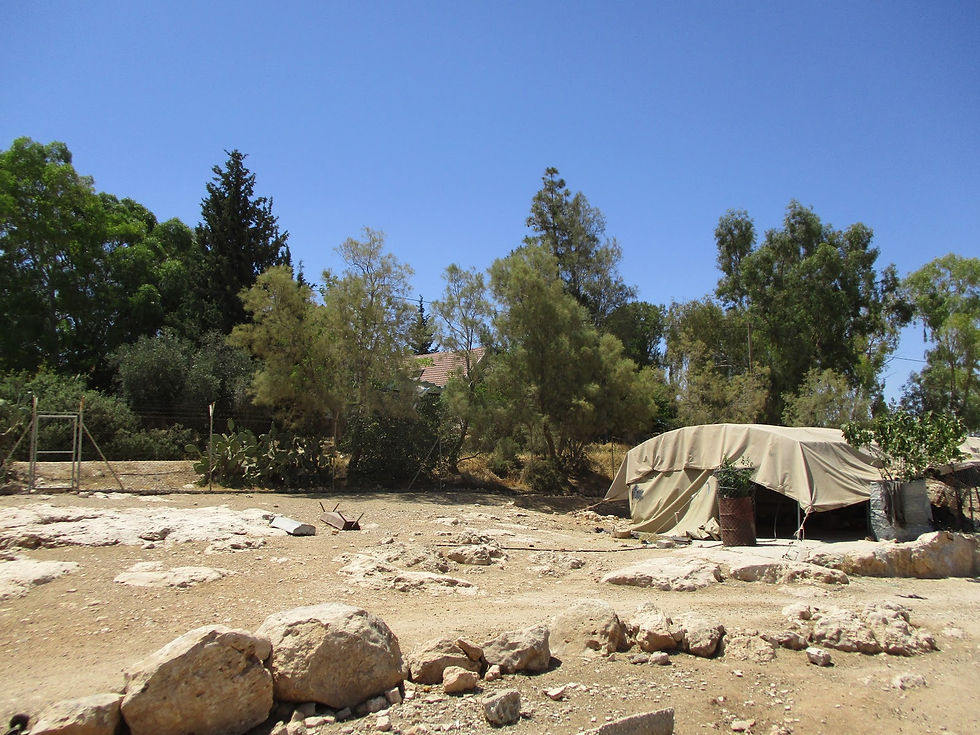Water access as a tool
- Mary L. Hanna
- Jun 15, 2018
- 3 min read
In the morning occupying Israeli soldiers arrived in the Palestinian village of Bardala with excavation equipment and a team of contractors. Soon they had water gushing from water lines and the village's water shut off.


It was no mistake. It was not a construction project. It was a destruction project. They cut up and removed 2000 feet of 6” steel municipal water pipe. They ripped up plastic water lines on private property and piled it in the road. They dug up streets. And all the while 20 soldiers, guns at ready, held that part of town including a major intersection and a bridge in a “security perimeter”, denying access to vehicles or pedestrians and generally threatening the residents.
The soldiers and contractors claimed this was all justified because the village has been stealing water. Of course there was no explanation why a simple court case and fine would not have resolved the issue rather than sealing private and public pipes, cutting off the water, and generally terrorizing the community. All this was a shock to me - I have run a municipal water system where people stole water and didn't pay their bills. We, the officials, would have been behind bars if we had done anything close to this. And rightfully so.

The village residents said Mekorot (the Israeli government water company) had taken over their municipal well guaranteeing them 250 cu meters of water. This was way more water than the village needed or used, but was less than their well produced. In 2006 Mekorot starting cutting back on the water going to village allowing them less and less. Now it only allows the village 62 cu meters. During the same time Bradala has gown from 200-300 to 3,000 people and with the day workers during working hours the village supplies water to 5,000 people.

Restricting the water that is allowed to flowWhile Mekorot restricts water in Bardala its water lines carry water from Bardala's 4 water wells to supply to the illegal Israeli settlements of Mehola, Sdemot Mehola, Nahaf Rottem, Maskiyyat, and 4 military bases. With their wells and traditional springs taken over by Israel's Mekorot Company the native Palestinians resorted to building rain water collection facilities, water conservation projects, and rain water storage tanks; only to have them destroyed by the Occupying Israeli Army - repeatedly. The justification for destroying them seems to always be that they do not have the proper Israeli issued permits. But the UN says Israel denies 97% Palestinian permit allocations in theJordan Valley. Where as near by the illegal Israeli settlements have no problem getting permits or water. There is a bigger picture than just the water lines in Bardala. It involves water access throughout the Jordan Valley in Palestine. A pattern of restricting water for the native Palestinians and giving water to the illegal Israeli settlements and their imported residents. As a result the illegal Israeli settlements have green lawns, swimming pools, and lush thousand acre irrigated farms. Whereas in the Palestinian villages water is always at risk. Crops are limited by water availability. Goat and sheep herds are limited by water availability. Palestinian farmer Khalid Ahmad Ali Fahamni puts it simply, If there is no water there is no farming. Meanwhile no one knows the future of Bardala. With their water mains ripped up and they only have about 3 days supply of water for their herds and crops.







Comments